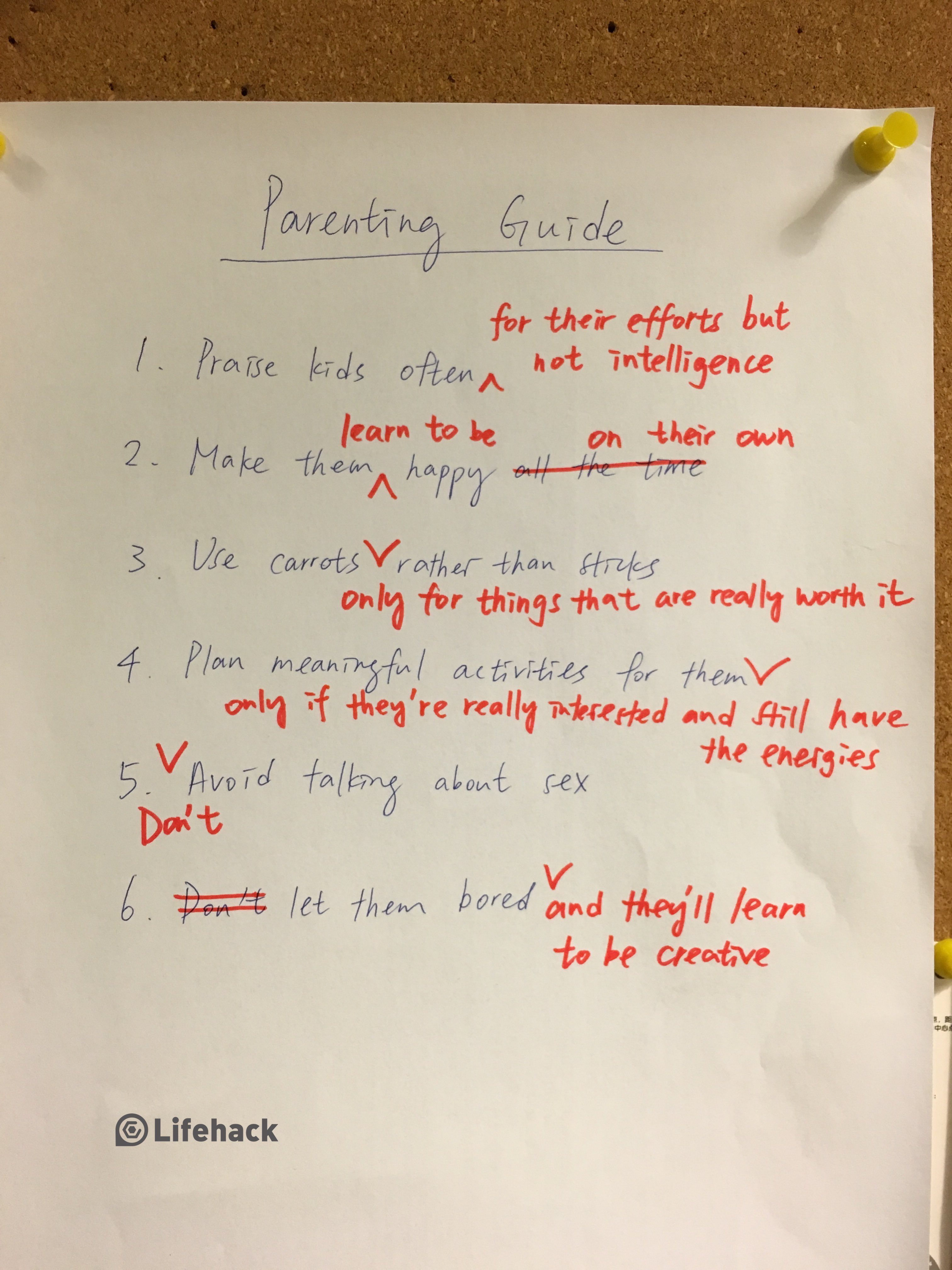Parenting is one of the hardest jobs in the world. Not only is it full-time, but it lasts for years and no qualification can fully prepare you for the responsibilities that come with raising the next generation! However, scientific research offers valuable insight into how we should approach the task of rearing children to be happy adults who contribute to society.
1. Praise kids often for their efforts, but not intelligence
Psychologists at Columbia University have discovered that emphasizing intelligence over effort could have a detrimental effect on a child’s attitude towards work. When you show your child that you value their work ethic and determination rather than their innate capacity for academic achievement, they will be less likely to feel discouraged in the face of setbacks. Children who are told how smart they are don’t benefit from this kind of praise, because they are likely to start worrying about the possibility of failure, which would threaten their status as “the smart one.” Congratulate children for their motivation, concentration and sustained effort instead.
2. Teach them to be happy on their own
If you provide your children with a never-ending array of pre-arranged activities and anxiously try to entertain them whenever they complain about being bored, they will not learn how to be happy by themselves. This increases the risk that they will grow up to be insecure adults who rely on other people for contentment. Increasingly, child psychologists are extolling the virtues of allowing children to be bored. According to child psychologist Lyn Fry: “Your role as a parent is to prepare children to take their place in society. Being an adult means occupying yourself and filling up your leisure time in a way that will make you happy.”
3. Use carrots only for things that are really worth it, rather than sticks
When your child is reluctant to undertake a task or work hard at school, it can be tempting to use carrots (bribes) in an attempt to shape their behavior. For example, you may promise them a material reward for certain grades. However, children need to learn that they cannot expect to be rewarded for undertaking necessary work. If they are over-rewarded, they will grow up with an unhealthy sense of entitlement. Use bribes sparingly.
4. Planning meaningful activities
Plan meaningful activities for them only if they’re really interested and still have the energy. It takes a lot of time, effort and sometimes money to put together a program of meaningful activities for a child. Is the payoff worth it? Some psychologists argue that children should be given more unstructured time. This allows them to learn how to entertain themselves and manage their own time. Aim to strike a balance between a few high-quality, educational activities and free time in which nothing specific is planned.
5. Don’t avoid talking about sex
Talking about sex with your child can be embarrassing for you both, but if you value your child’s sexual health and well-being, it’s best to address the facts around sex and reproduction from an early age. Research shows that generally, honest and comprehensive sex education (delivered in age-appropriate language) is the best approach to take. For instance, studies have demonstrated that adolescents who are informed about contraception options and safer sex practices are at less risk of teenage pregnancy. When your child asks you where babies come from or what a particular sexual term means, answer them in a calm, clear way that leaves no room for misunderstanding. Make it clear that sex is a natural, normal part of life and that your child need not be ashamed of asking you questions.
6. Let them be bored and they’ll learn to be creative
Creativity is not a trait that some people possess from birth and others lack. The way in which we are raised has a strong impact on how creative we are as adults. Children have no opportunity to contemplate life and come up with new ideas if they are never allowed to be bored. Boredom forces a child to form their own “internal stimulus” that ultimately lays the groundwork for creative thought.
Research carried out at the University of Texas shows that when we are bored, we are likely to devise new goals and think of new ways to achieve our aims. This promotes a creative approach to life and a willingness to seek out alternatives when our preferred course of action is thwarted. Therefore, giving your child the opportunity to be bored will help them develop the cognitive skills needed to become creative thinkers and problem-solvers in later life.













































